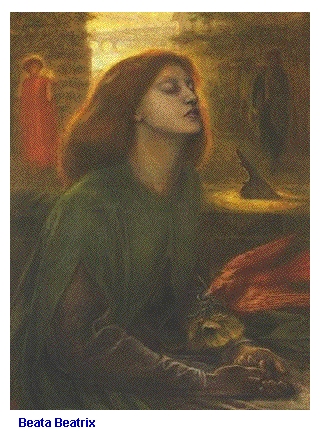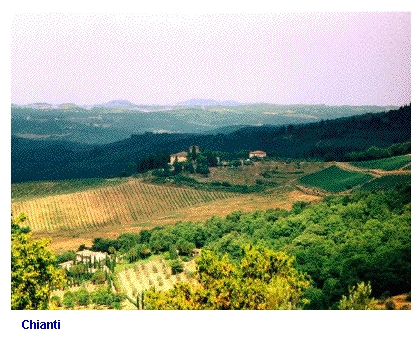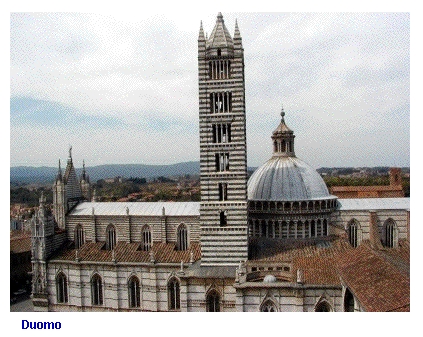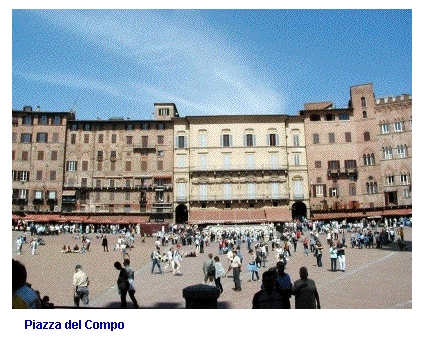 Epiphany by Sandra Effinger
Epiphany by Sandra Effinger
 I would not be here if I had not been
there on the 16th of October, a cold rainy Monday, 1967. Here,
being in the midst of a rewarding career as a high school English
teacher; there, being the third floor of the University of Oklahoma
library. I should have been at the afternoon sessions of a yearbook
workshop that was the purpose of the field trip that brought
me from my small Oklahoma home town to the largest university
in my state, but I had loved books all 17 of my years and how
could I not go see them when they had such a huge building all
to themselves? I would not be here if I had not been
there on the 16th of October, a cold rainy Monday, 1967. Here,
being in the midst of a rewarding career as a high school English
teacher; there, being the third floor of the University of Oklahoma
library. I should have been at the afternoon sessions of a yearbook
workshop that was the purpose of the field trip that brought
me from my small Oklahoma home town to the largest university
in my state, but I had loved books all 17 of my years and how
could I not go see them when they had such a huge building all
to themselves?
 Altus High School had limited resources,
the books kept behind chest-high counters, ransomed by individual
call number, and released one at a time in exchange for each
returned book. The Bizzell Memorial Library had five floors with
nothing between the books and me. And I was on a mission. Altus High School had limited resources,
the books kept behind chest-high counters, ransomed by individual
call number, and released one at a time in exchange for each
returned book. The Bizzell Memorial Library had five floors with
nothing between the books and me. And I was on a mission.
 My high school literature textbook
- from a time when textbooks did not come with color pictures
on every page - had six color plates, one of which was Dante
Gabriel Rossetti's Beata Beatrix, a painting that I am
sure you know well, but that opened a whole new world for me.
I still remember how confused, yet intrigued, I was by that painting.
Everything in the picture draws attention to Beatrice's yearning,
from the way her body leans forward to the tranquility of her
still hands, from her closed eyes and upturned face to the symmetrically
placed images in the background, both looking toward her. The
caption revealed that Rossetti had painted it a year after his
wife died and made some reference to the background figures -
one of whom was supposed to be Love, personified, bearing in
his hand a heart in flames; the other, Dante himself. My high school literature textbook
- from a time when textbooks did not come with color pictures
on every page - had six color plates, one of which was Dante
Gabriel Rossetti's Beata Beatrix, a painting that I am
sure you know well, but that opened a whole new world for me.
I still remember how confused, yet intrigued, I was by that painting.
Everything in the picture draws attention to Beatrice's yearning,
from the way her body leans forward to the tranquility of her
still hands, from her closed eyes and upturned face to the symmetrically
placed images in the background, both looking toward her. The
caption revealed that Rossetti had painted it a year after his
wife died and made some reference to the background figures -
one of whom was supposed to be Love, personified, bearing in
his hand a heart in flames; the other, Dante himself.
 The Rossetti poems in the textbook
included the sonnet "On the 'Vita Nuova' of Dante"
and several sonnets for pictures - without the pictures, pictures
that could not be found in my little Oklahoma town. I wanted
to know more about the Dante. The Rossetti poems in the textbook
included the sonnet "On the 'Vita Nuova' of Dante"
and several sonnets for pictures - without the pictures, pictures
that could not be found in my little Oklahoma town. I wanted
to know more about the Dante.
 On the third floor of that library
I found out that the Dante was not a he but a they. On the third floor of that library
I found out that the Dante was not a he but a they.
 I was embarrassed by my ignorance
and excited that there was so much more to learn and I even found
out that they had a whole other library in the art building and
what else was I missing and what else was everyone else missing
and what could I do to fix this? How could I have lived 17 years
and remained so ignorant? I was embarrassed by my ignorance
and excited that there was so much more to learn and I even found
out that they had a whole other library in the art building and
what else was I missing and what else was everyone else missing
and what could I do to fix this? How could I have lived 17 years
and remained so ignorant?
 Years later when I first read Plato's
"Allegory of the Cave," I knew exactly how the cave
dweller felt when he stepped outside into the sunshine for the
first time. Exactly. Years later when I first read Plato's
"Allegory of the Cave," I knew exactly how the cave
dweller felt when he stepped outside into the sunshine for the
first time. Exactly.
 I was compelled to become a teacher.
I always hang a poster of Rossetti's Beata Beatrix in
my classroom, so that I am always aware of the presence of ignorance
and the potentiality of knowledge in each of us at any time.
Epiphany. I was compelled to become a teacher.
I always hang a poster of Rossetti's Beata Beatrix in
my classroom, so that I am always aware of the presence of ignorance
and the potentiality of knowledge in each of us at any time.
Epiphany.
 I have never before admitted that
I did not know that these were two distinctly different people.
My Dante wrote short poems, brimful of sensory detail, deliciously
synaesthetic, and often included his own illustrations that further
enriched my reading; your Dante wrote long, difficult books,
full of allusions to a culture alien to me. Your Dante intimidated
me. I have never before admitted that
I did not know that these were two distinctly different people.
My Dante wrote short poems, brimful of sensory detail, deliciously
synaesthetic, and often included his own illustrations that further
enriched my reading; your Dante wrote long, difficult books,
full of allusions to a culture alien to me. Your Dante intimidated
me.
 But my Dante loved your Dante. I could
not really appreciate mine unless I learned more about yours.
My reading of Dante Alighieri is disorganized and incomplete.
I've read the Vita Nuova and parts of The Inferno,
but not all. Nor am I a Rossetti scholar, though I did write
a really good paper on him in graduate school. Rossetti is certainly
not as "important" as Dante Alighieri, in any sense.
I would not even go so far as to say that Rossetti is my favorite
poet. He's just someone who showed me that ignorance need not
be a permanent condition and introduced me to his favorite poet
who is probably your favorite poet, as well. But my Dante loved your Dante. I could
not really appreciate mine unless I learned more about yours.
My reading of Dante Alighieri is disorganized and incomplete.
I've read the Vita Nuova and parts of The Inferno,
but not all. Nor am I a Rossetti scholar, though I did write
a really good paper on him in graduate school. Rossetti is certainly
not as "important" as Dante Alighieri, in any sense.
I would not even go so far as to say that Rossetti is my favorite
poet. He's just someone who showed me that ignorance need not
be a permanent condition and introduced me to his favorite poet
who is probably your favorite poet, as well.
  Our Dantes were once oddly entwined
in my poorly-educated teenage mind in a serendipitous way which
indirectly shaped me into the learner I am today and led me to
where I want to be this summer - immersed, perhaps a bit overwhelmed,
in the experience, "text-crawling through Dante." Our Dantes were once oddly entwined
in my poorly-educated teenage mind in a serendipitous way which
indirectly shaped me into the learner I am today and led me to
where I want to be this summer - immersed, perhaps a bit overwhelmed,
in the experience, "text-crawling through Dante."
 As I read over the descriptions of
all the National Endowment for the Humanities Summer Institutes,
my breath caught in my throat when I read about your summer in
Siena. Your enthusiasm came through in every line. Both of you
have been teaching Dante for as long as I've been teaching teenagers.
Those who are not lifelong teachers do not understand how those
who are can teach the same literature year after year, but we
know that when you love something, it gets better not boring. As I read over the descriptions of
all the National Endowment for the Humanities Summer Institutes,
my breath caught in my throat when I read about your summer in
Siena. Your enthusiasm came through in every line. Both of you
have been teaching Dante for as long as I've been teaching teenagers.
Those who are not lifelong teachers do not understand how those
who are can teach the same literature year after year, but we
know that when you love something, it gets better not boring.
 If wishing could make it happen, you
would already have picked me because I want this seminar so passionately.
Italy has called to you before and who would not want to follow
your lead? I am particularly intrigued by the way you plan to
incorporate art and the physical context of Siena in our study.
Your qualifications to teach me are evident, and I hope I can
convince you that I am worthy of instruction. If wishing could make it happen, you
would already have picked me because I want this seminar so passionately.
Italy has called to you before and who would not want to follow
your lead? I am particularly intrigued by the way you plan to
incorporate art and the physical context of Siena in our study.
Your qualifications to teach me are evident, and I hope I can
convince you that I am worthy of instruction.
 I am a good teacher because I've been
fortunate to work with colleagues who are better, who inspire
me to be better, who stimulate each other, who share, and who
have helped me enjoy teaching for almost every one of the 28
years I've been doing this. Teaching renews me only as long as
I keep learning. I am a good teacher because I've been
fortunate to work with colleagues who are better, who inspire
me to be better, who stimulate each other, who share, and who
have helped me enjoy teaching for almost every one of the 28
years I've been doing this. Teaching renews me only as long as
I keep learning.
 Traveling is a vital part of this
opportunity. We could read Dante anywhere, but I want the chance
to read him in Siena. Even if my luggage gets lost and it's hot
and my feet hurt, my worst travel experiences have given me moments
that made the journey itself as valuable as the destination.
Although I grew up in Oklahoma, my stepfather was in the Air
Force and my family was stationed in England immediately after
my high school graduation. The odd transportation policies of
the Department of Defense blessed my college summers. I could
fly standby on any military flight going anywhere until one of
those airplanes landed at my family's home base in Lakenheath,
England. I knew where I was going, just not exactly how or when
I would arrive. Every summer I followed a general itinerary -
towards England - with stops in the Azores, Greece, Iceland,
Scotland and one life-altering day in Italy more than 30 years
ago. Traveling is a vital part of this
opportunity. We could read Dante anywhere, but I want the chance
to read him in Siena. Even if my luggage gets lost and it's hot
and my feet hurt, my worst travel experiences have given me moments
that made the journey itself as valuable as the destination.
Although I grew up in Oklahoma, my stepfather was in the Air
Force and my family was stationed in England immediately after
my high school graduation. The odd transportation policies of
the Department of Defense blessed my college summers. I could
fly standby on any military flight going anywhere until one of
those airplanes landed at my family's home base in Lakenheath,
England. I knew where I was going, just not exactly how or when
I would arrive. Every summer I followed a general itinerary -
towards England - with stops in the Azores, Greece, Iceland,
Scotland and one life-altering day in Italy more than 30 years
ago.
 When I graduated from high school,
Twiggy was the model of the year, her curveless body an ideal
my thinnest friends could not approach. I had always described
myself as "chubby" or "pleasingly plump."
I arrived in Italy in the company of skinny boys and slender
girls. I ignored the whistles, knowing full well they could never
be meant for me, nor need I fear the infamous Italian pinchers.
My thin friends had little luck hailing a cab, until suddenly
one cut across four lanes of traffic and screeched to a halt
in front of us. The driver jumped out, took off his hat, and
bowed chivalrously to me. Though I knew no Italian, I understood
what his "elegante" meant and that it was meant for
me. In Italy, for the first time in my life, I was beautiful. When I graduated from high school,
Twiggy was the model of the year, her curveless body an ideal
my thinnest friends could not approach. I had always described
myself as "chubby" or "pleasingly plump."
I arrived in Italy in the company of skinny boys and slender
girls. I ignored the whistles, knowing full well they could never
be meant for me, nor need I fear the infamous Italian pinchers.
My thin friends had little luck hailing a cab, until suddenly
one cut across four lanes of traffic and screeched to a halt
in front of us. The driver jumped out, took off his hat, and
bowed chivalrously to me. Though I knew no Italian, I understood
what his "elegante" meant and that it was meant for
me. In Italy, for the first time in my life, I was beautiful.
 Even today, I am surprised at the
impact of that one moment. I could never have been beautiful,
not even to myself, without Italy. For me, travel to another
country, where beauty was defined differently than it was in
America, was an enduring Valentine. That sincere, gracious gesture
changed my perspective. I carry that memory of a 30-year-old
compliment and I move through life changed by a moment of traffic-stopping
Beauty. Epiphany. Even today, I am surprised at the
impact of that one moment. I could never have been beautiful,
not even to myself, without Italy. For me, travel to another
country, where beauty was defined differently than it was in
America, was an enduring Valentine. That sincere, gracious gesture
changed my perspective. I carry that memory of a 30-year-old
compliment and I move through life changed by a moment of traffic-stopping
Beauty. Epiphany.
 I have remained sensitive to how path
leads on to path and if you don't know where you're going, you
may end up someplace else. How might my next 30 years be transformed
if I am there, with you and Dante, in Siena, this summer? I have remained sensitive to how path
leads on to path and if you don't know where you're going, you
may end up someplace else. How might my next 30 years be transformed
if I am there, with you and Dante, in Siena, this summer?
|

